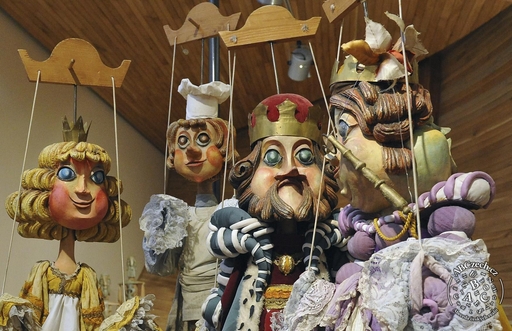
Traditional Czech form of theatre. Its beginnings date from the 17th century. Czech puppetry was inscribed on the list of intangible heritage by UNESCO.

Czech costume designer and teacher, who lived in Slovakia. Granddaughter of Jan Evangelista Purkyně.
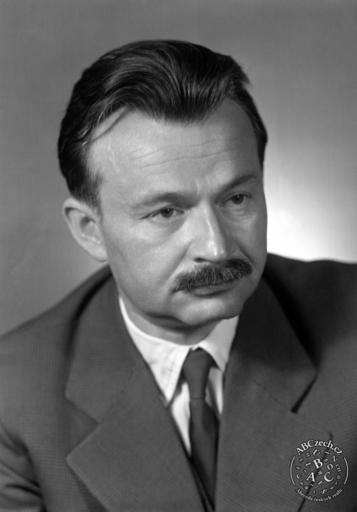
World-famous Czech theatre and film director. One of the founders of the multimedia theatre Laterna magika.

Charismatic film, theatre and television actor, also active and well known abroad. One of the most distinctive contemporary Czech actors and one of a few Czech actors that have achieved success in Hollywood.

Prominent Czech theatre, film and television actress, narrator of fairy tales, voice actress. One of the most distinctive Czech actresses of the 20th century.

Actor, stage manager and director. He became star of Czech late Romantic theatre, characterised primarily by a cult of beautiful form and aesthetic function typical of the Lumírovci generation.

Prague theatre originally associated exclusively with Jiří Suchý’s and Jiří Šlitr’s works and with the so-called authorial song theatre.
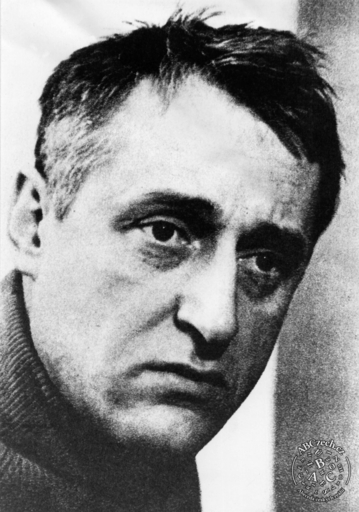
15 December 1931, Elbančice – 14 December 1988, Prague
Prominent Czech film, TV and theatre director and scriptwriter of international repute. One of the most significant figures of the New Wave. Because of his innovative approach to film and theatre he was labelled “philosopher of the Czech New Wave”.
After studying directing at the Film and TV School of the Academy of Performing Arts in Prague (FAMU) in 1962 Evald Schorm worked at first in the Studio of Documentary Film, where his long collaboration with the cameraman Jan Špáta began. Their best documentaries include the short films Earth to Earth (Země zemi, 1962) and To Live Your Life (Žít svůj život, 1963) about the photographer Josef Sudek, and Reflection (Zrcadlení, 1965). Schorm gradually moved from documentaries and short films towards feature films. He created most of these between 1965 and 1969, but most of his films were censored and were banned until as late as 1990. The psychological films Courage for Every Day (Každý den odvahu, 1964), Return of the Prodigal Son (Návrat ztraceného syna, 1966) and the adaptation of Josef Škvorecký‘s novel The End of a Priest (Farářův konec, 1968) brought him international repute. After the parable The Seventh Day, the Eighth Night (Den sedmý, osmá noc, 1969), inspired by the Soviet invasion in the August of 1968, he was banned from making any films, which made him focus on theatre directing. He worked in Prague’s Theatre on the Balustrade, The Drama Club, Semafor and Studio Ypsilon, but also in opera and in a number of theatres outside Prague. In 1974 he became director in the theatre Laterna magika, in which he masterfully combined theatrical and film devices. From 1982 he also collaborated with the drama ensemble of the National Theatre. One of his best stage productions was the adaptation of The Brothers Karamazov in Theatre on the Balustrade (TV recording was made in 1981).
Evald Schorm’s films are characterised by a unique capturing of individuals’ mental states and of social changes. It is heavily existentialist and clearly influenced by Franz Kafka’s works. As a theatre director, Schorm applied to actors a film approach to body movements and the visual appearance of the stage, educating thus an exceptional generation of actors. The Prague theatre Evald was named after Schorm. In 1992 he was posthumously awarded the Order of Tomáš Garrigue Masaryk for his lifetime contribution to film and theatre.

Popular theatre actress, who remained loyal to the Czech scene in spite of many offers from abroad. She lived through several artistic styles and marked the beginnings of Czech theatrical education.
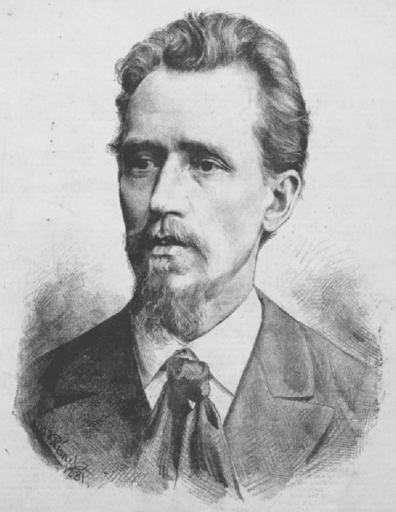
Poet, publicist and publisher of the magazine Lumír. He translated into Czech almost all the works by William Shakespeare. Themes from works of the Ruch and Lumír generation appear in his works. He is regarded as the founder of modern Czech poetry for children.
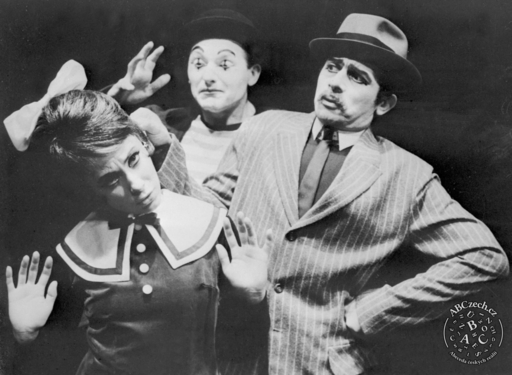
Theatres usually associated with the period from the late 1950s to the 1980s. Their principles are still characteristic of Czech theatre.

Distinguished theatre and film director, screenwriter, dramatist, actor and teacher. One of the co-founders and prominent figures of the Jára Cimrman Theatre.

Film, theatre and radio actor and dubber. Actor with masterful artistic expression, an acknowledged figure of Czech film and theatre of the second half of the 20th century.

A theatre in České Budějovice. One of the regional Czech city-run multi-ensemble theatres. It has four ensembles: drama, opera, ballet and puppet theatre. It has several buildings and also manages the revolving theatre in the chateau park in Český Krumlov.

Renowned theatre, film and radio actor known from Czech comedies. Screenwriter, popular entertainer and narrator of unforgettable stories.
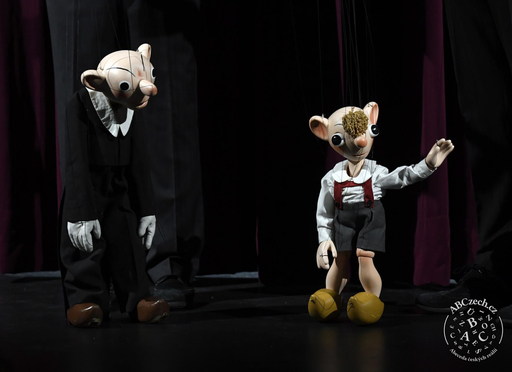
One of the most important Czech puppet theatres. It features the iconic Spejbl and Hurvínek puppets, created in the 1920s by Josef Skupa.
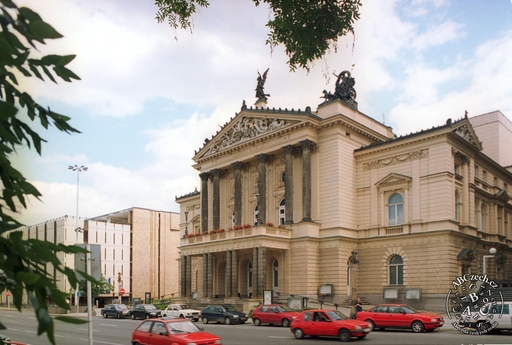
Historic theatre building in the Vinohrady district of Prague, one of the scenes of the National Theatre. Its repertoire mostly consists of opera and ballet. It is the largest theatre space in Bohemia.
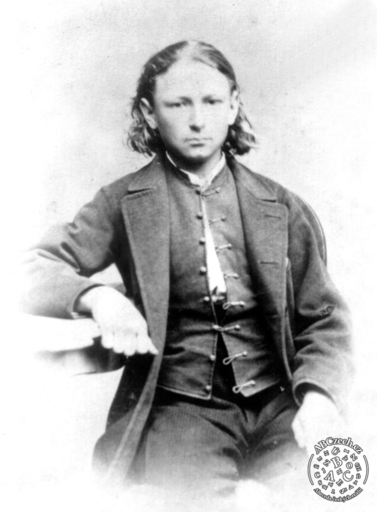
Dramatist, first dramaturg of the National Theatre in Prague, writer, advocate of theatre realism, one of the first Czech authors of social-critical dramas.
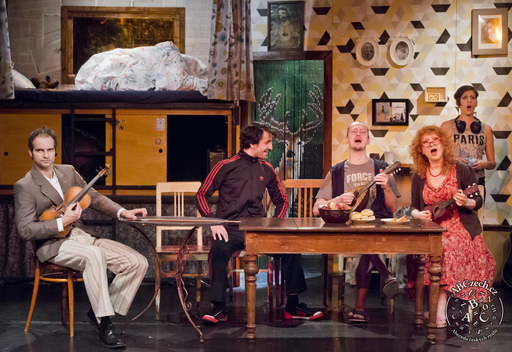
One of the oldest small Czech studio theatres. It is located in Spálená Street in Prague.
2016-2020 ABCzech.cz - © Filozofická fakulta Univerzity Karlovy
Content from this website may be used without permission only for personal and non-commercial purposes and with the source cited. Any other use is allowed only with the authors' consent.
This web application Sonic.cgi meets GDPR requirements. Current information can be found here.